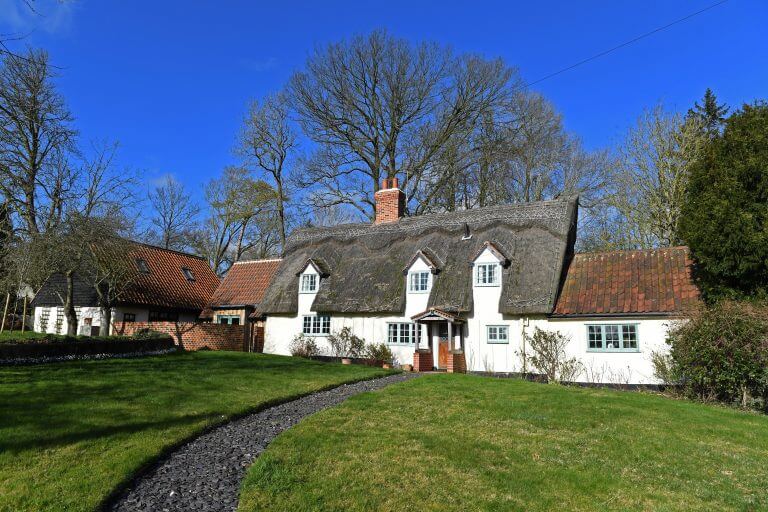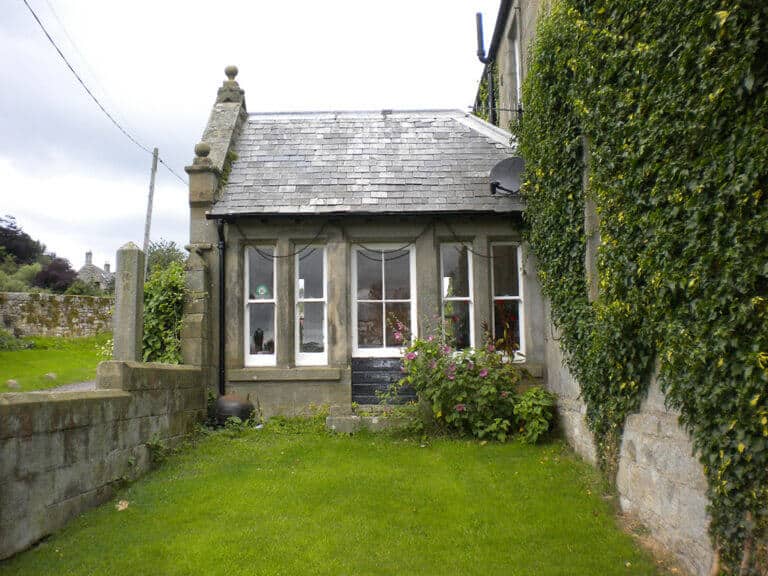Are You Making An Escape To The Country?
The landscape has changed beyond recognition for many over the past year, thanks to the pandemic. And quite literally for those who have realised that remote working frees them from being tied to living within reach of the bright lights and bustle of the city to do their jobs. The result of this is that more and more people are escaping urban life, re-thinking where they live and exchanging vistas of cityscapes for views of rolling hills.
If you’re considering leaving the city behind for a rural idyll, you may find yourself looking at period properties in picturesque villages, packed with original features. While on paper, these can seem like the perfect antidote to urban living, homes with history come with obligations for owners. So if you’re escaping to the country and taking on a period home, we’ve put together a few things to think about:
Get the relevant permission
If your new property has listed status, you’ll need building consent before you do anything to it. Homes in Conservation Areas and Areas of Outstanding National Beauty are also protected, and planning permission will be essential. There is plenty of information available online with details of who you might need to contact – a valuable resource such as this is a great place to start.
Approach restoration with sensitivity
If you’re moving to a home which is in a state of disrepair, it can be tempting to rip out damaged features and source reclaimed or new versions. Original features that are in keeping with the era of the home, however, are intrinsic to a property’s architectural heritage and value. Even if you were planning to scour local salvage yards for replacements, check first if your original features can be repaired. Careful restoration of beams, encaustic tiles, fireplaces and timber windows, for example, can leave you with far better quality features than if you replace them, too.
Expert restoration can give old features a modern lease of life
An old country pad, with original sash windows or casement windows, will give you the look you’re after – however this might not be conducive with the comfort of modern living. Fear not – expert restoration can discreetly build in draught-proofing, as well as secondary or double glazing, so your home retains its country charm without subjecting you to cold draughts and rattles.

Booking an initial telephone consultation with a company like Ventrolla is a good starting point. Plus they can help guide you through any planning applications that you need to do as part of your wider project – using their experience to provide you with the technical specs and drawings that a planning department will want to see.
Timber window renovation
If you’d like to ask us a question about your timber window project, or book a survey, please make an enquiry today.
FAQs about renovating the windows of a period properties, packed with original features
- What does it mean when a property has listed status?
When a property has listed status, it means that it has been officially designated as a building of special architectural or historic interest by the relevant national heritage agency. This means that the property is protected by law and there are restrictions on what alterations can be made to the building. - What are the limitations of owning a listed property?
The main limitation of owning a listed property is that there are restrictions on what alterations and improvements can be made to the property. This can make it more difficult and expensive to renovate or modernize the property. Additionally, owners of listed properties are often required to obtain permission from the relevant national heritage agency before making any alterations. - How do I find out if a property is listed?
In most countries, you can find out if a property is listed by contacting the relevant national heritage agency. In the UK, for example, you can search the National Heritage List for England, Scotland, Wales or Northern Ireland, which is a database of all listed properties in the country. - What is a Conservation Area?
A Conservation Area is an area that has been designated by the local planning authority as having special architectural or historic interest. The aim of Conservation Areas is to preserve and enhance the character and appearance of the area. - What is an Area of Outstanding Natural Beauty (AONB)?
An Area of Outstanding Natural Beauty (AONB) is an area that has been designated by the relevant national authority as having significant landscape value. The aim of AONBs is to protect and conserve the natural beauty of the area. - What are the restrictions on development in a Conservation Area or AONB?
Development in a Conservation Area or AONB is subject to more stringent planning regulations than in other areas. Any proposed development or alterations must be sympathetic to the area’s character and appearance, and may require special planning permission or conservation area consent. - Can I make changes to my property if it is in a Conservation Area or AONB?
Yes, you can make changes to your property if it is in a Conservation Area or AONB, but any alterations must be sympathetic to the area’s character and appearance. You may require special planning permission or conservation area consent for certain types of work, such as the installation of satellite dishes or the removal of trees. - What is conservation area consent?
Conservation area consent is a type of planning permission that is required for any development or alteration to a property within a Conservation Area. It is designed to ensure that any proposed changes are sympathetic to the area’s character and appearance. - How do I find out if a property is in a Conservation Area or AONB?
You can contact your local authority’s planning department or conservation officer to find out if your property is in a Conservation Area or an AONB. They will be able to provide you with information on any planning restrictions or requirements that may apply to your property. - How do I know if my timber windows need restoration?
Signs that your timber windows need restoration include draughts, difficulty opening or closing, rot, peeling paint or varnish, and condensation between the panes of glass. If you have any questions about your wooden windows or would like to enquire about having your timber windows restored, please contact our team.

